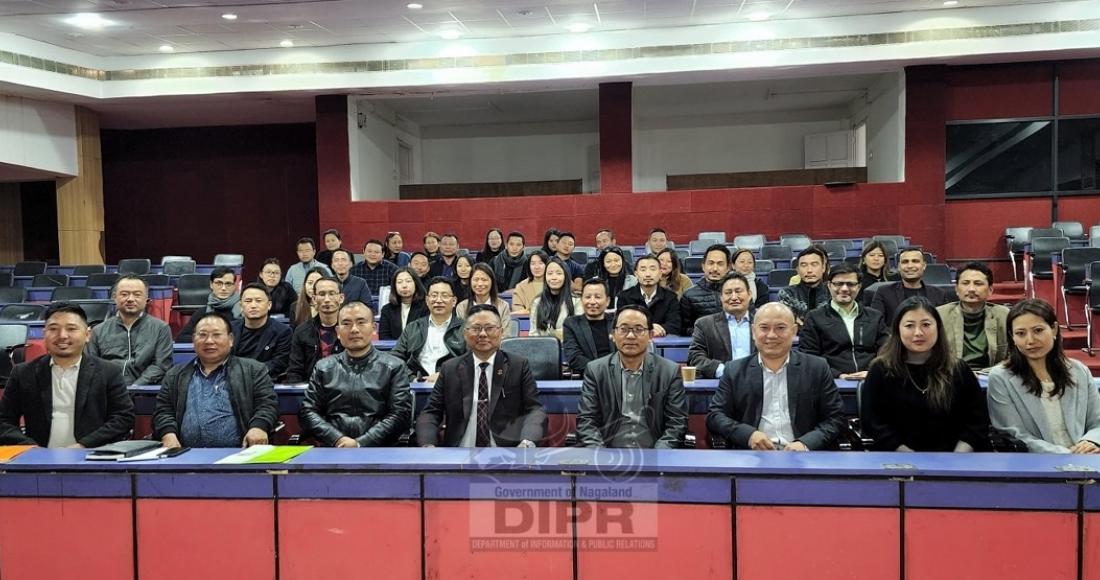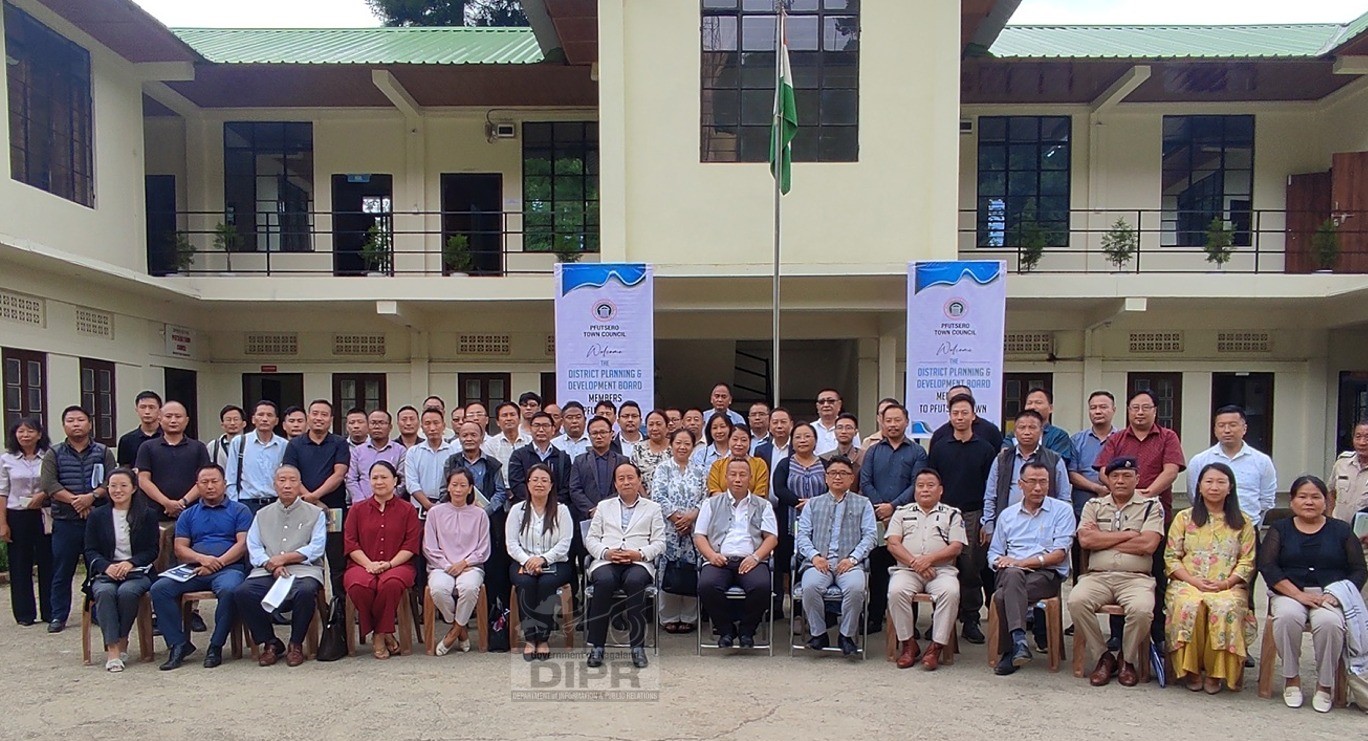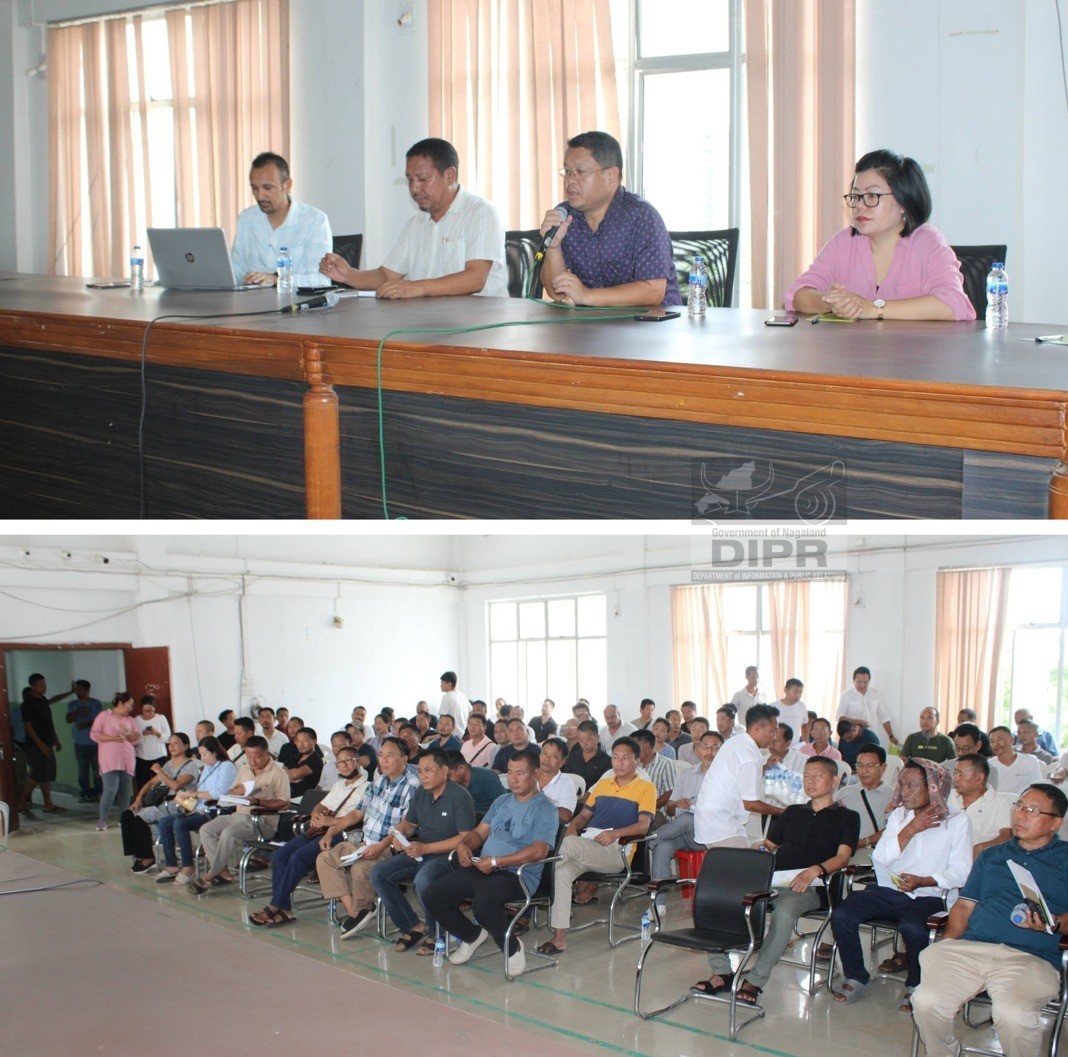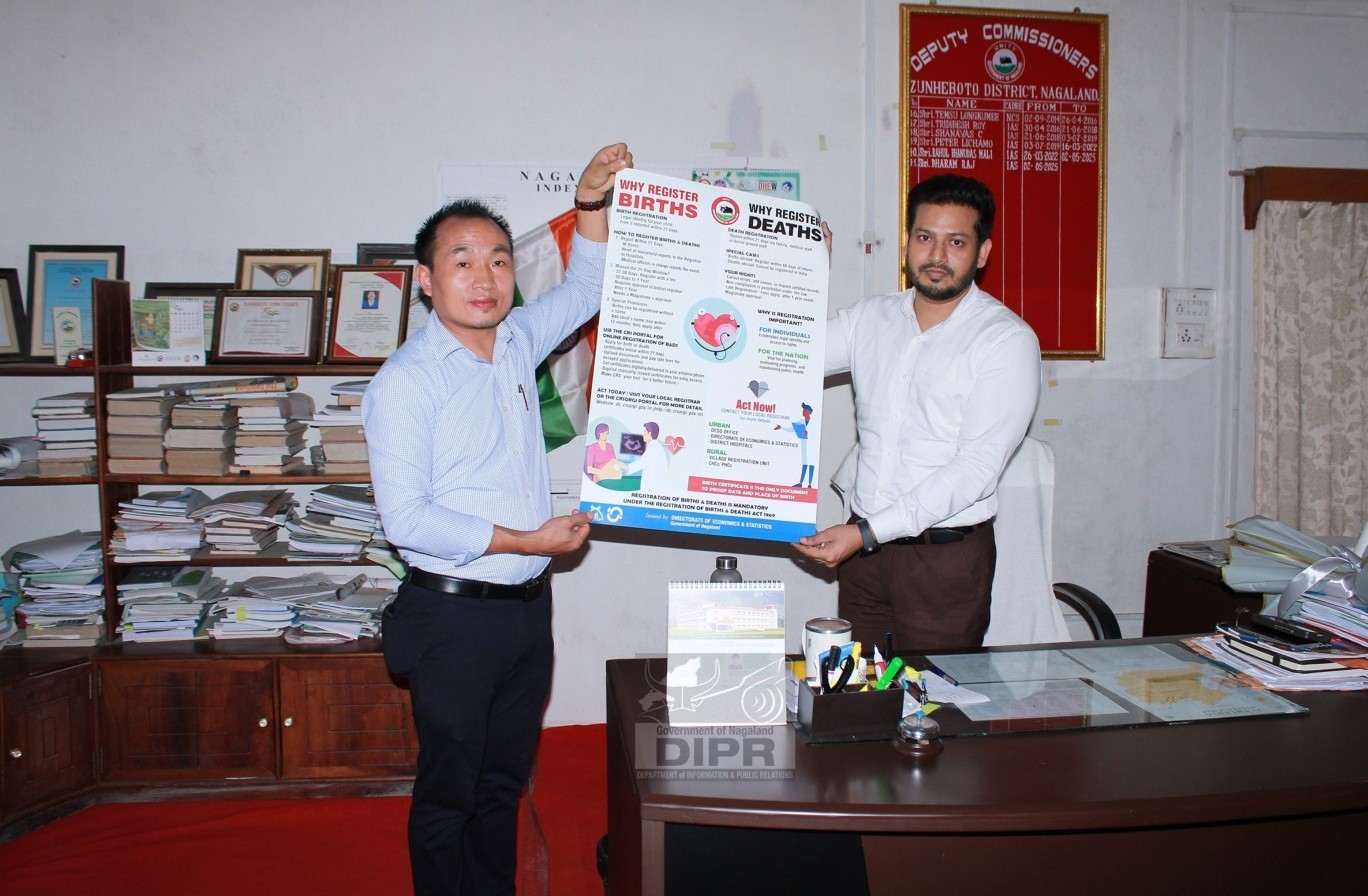Fostering Climate Resilient Upland Farming System in the North East (FOCUS) a project funded by International Fund for Agriculture Development in Nagaland (IFAD) held a two-day workshop on ‘Strengthening Project interventions’ from 5th to 6th December 2022 at Capital Convention Hall, Kohima. The workshop was attended by officers and staff from the eight implementing project districts and staff from the State Project Management Unit (SPMU) to improve the project's deliverance of services.
Y Kikheto Sema, IAS, APC & MD FOCUS Nagaland, in the closing session, encouraged all the staff to perform diligently in all the jobs they are assigned with. He pointed out the importance of external funds and projects coming into the State, stating that after 56 years of Statehood, IFAD funded FOCUS project is the first External Aided Project implemented under the Agri and Allied Department. The project in its course of operation has faced numerous challenges, with its wide area coverage of 645 villages with limited human resources. Despite all the challenges the project has achieved tangible impacts in rural farming communities.
He thanked all the pioneers who were involved right from the beginning in the design and inception of the project for a smart climate-resilient upland farming system. He also expressed his appreciation and thanked all Agriculture and allied Departments for giving their best effort and attaching their best officers to the project as Project Implementing Team.
APC urged all team members to make the best use of the remaining project periods as there are hardly 15 months for the project to wind up. He reminded and appealed to all contractual staff to continue rendering their best for the 1433 employment opportunities that IFAD-FOCUS has created at PMU & DMU including Community Animal Health Workers (CAHW) and Lead farmers engaged as last-mile delivery of the project.
He also appreciated the District Team Focus IFAD for presenting and sharing field experiences, which is an important aspect to retrospect the project approach through the lesson learned and moving forward.
In the last year of the project cycle, he urged everyone to work the extra mile and leave a legacy behind in his concluding remarks.
(DIPR)





